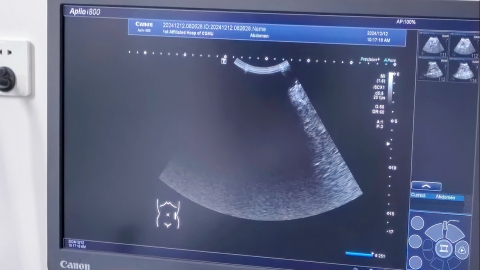Is it necessary to fast before undergoing a B ultrasound of the uterus?
Whether fasting is required for a uterine ultrasound depends on the examination method. A transabdominal ultrasound requires bladder filling but not fasting, while a transvaginal ultrasound requires neither fasting nor bladder filling. Detailed explanations are as follows:

During a transabdominal ultrasound of the uterus, the bladder must be filled to clearly visualize the structure of the uterus and its appendages. This is because the abdominal area is covered by intestines, and filling the bladder pushes the intestines aside, creating a sound transmission window. Whether or not the patient is fasting does not affect the results. Although intestinal gas after eating may slightly interfere with the imaging, the impact is minimal. Therefore, normal eating is allowed before a transabdominal ultrasound; however, the patient should drink water and fill the bladder 1–2 hours in advance to ensure the bladder is adequately filled.
For a transvaginal ultrasound of the uterus, the probe is inserted directly into the vagina, close to the uterus and ovaries. Bladder filling is unnecessary, and imaging is not affected by gas or fat in the abdominal cavity, resulting in clearer images. This method has no specific dietary requirements and can be performed either on an empty stomach or after a meal. It is especially suitable for married women, obese individuals, or those with thick abdominal fat. Before the examination, the bladder should be emptied to avoid interference from urine during the procedure and observation.
Prior to undergoing a uterine ultrasound, the appropriate examination method should be clearly determined. The patient should stay relaxed and cooperate with the doctor during the examination to ensure accurate results.









